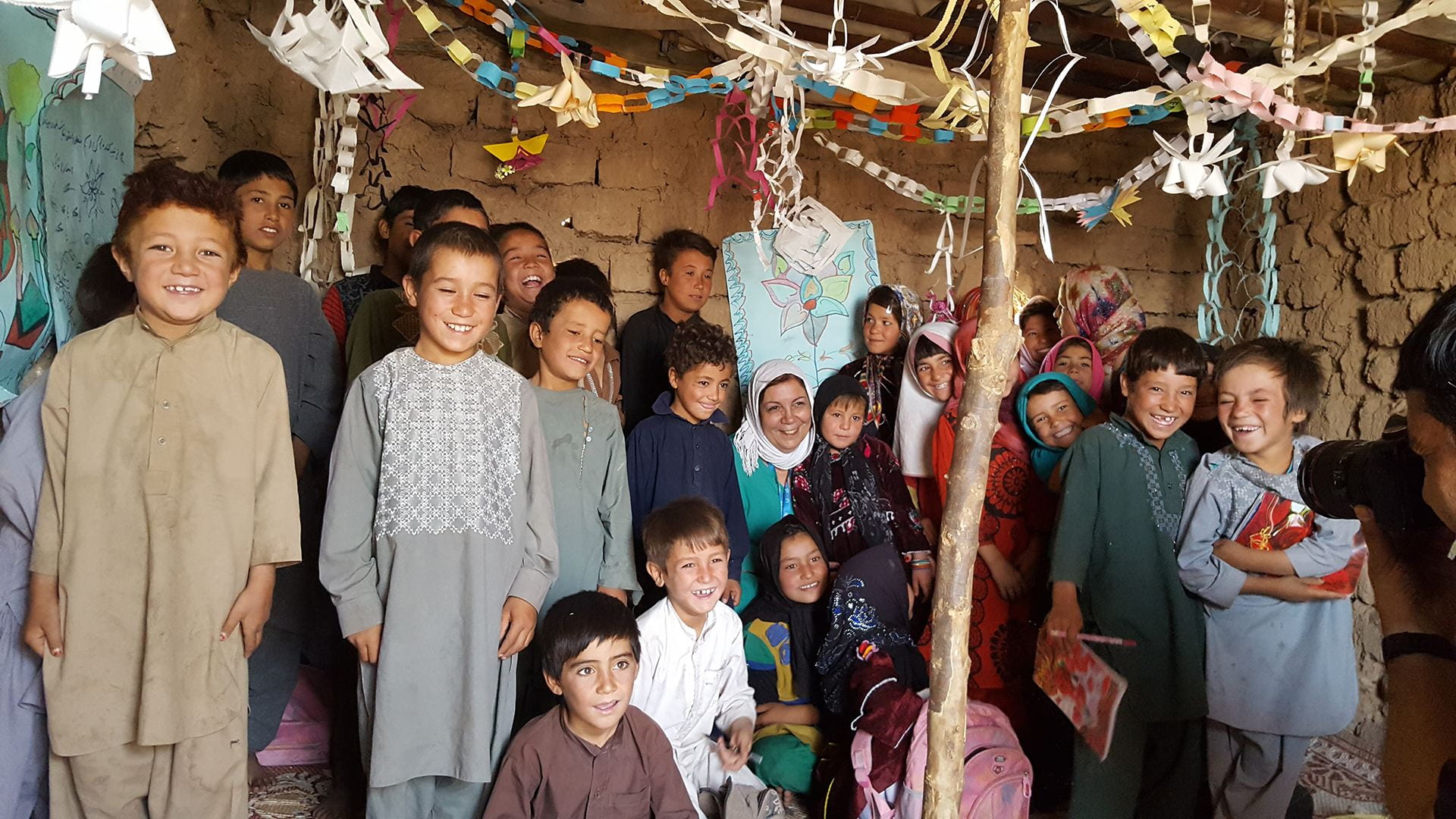
Features | Profiles
Adele Khodr (BA ’81, MA ’85): Facing the challenge with resilience, tenacity, and compassion
by Alison Freeland
Fall 2019/Winter 2020
“We in UNICEF have the best mandate,” says Adele Khodr. She should know, having worked for UNICEF for twenty-nine years, fiercely upholding the mandate the United Nations General Assembly gave to the organization in 1989: to advocate for the protection of children’s rights. “Nobody can say no to a child,” she says. “They are our future, and we can influence their world. That mandate works everywhere. Even if you are sitting with a villain, when you start talking about a child, it’s different.”
The year 1989 was also when Khodr began with UNICEF in Lebanon after graduating from AUB and teaching at both AUB and LAU. “It was the beginning of the end of the war and a tremendously difficult time,” she says. “When I defended my thesis in 1985, bullets were flying outside. The professor I had worked with was American and left because of the kidnapping. My main thesis adviser had changed. My work in the hospital (AUBMC) was changing. The doctor in charge was Dr. Vazken Der Kaloustian, a Lebanese Armenian who had lost three of his best friends during the Lebanon war and gone to Canada. We had finally started the National Unit of Human Genetics and had researchers, medical practitioners, and laboratory technicians all productively working together until we had to disband. I was the last to leave the Unit. The UNICEF position felt like a volunteer job at first, but I stuck with it.”
The Beirut office Khodr worked in was so small she did everything—health, vaccinations, gender equality counseling, and basic social services, water, sanitation, and child protection. Maybe most important to her career, she managed a team and traveled throughout Lebanon. She thought she would stay in the country forever, but after ten years she was accepted for a UNICEF position in Sudan.
Almost immediately, she was sent to Juba. “It was the bush,” she says, still sounding surprised by what she saw. “There were all these insects and I thought, ‘what did I do to my life?’ I spent weeks in a place with nothing—no generators, just candles. It was one of the toughest first encounters with Africa I could have had.”
But again, Khodr didn’t give up and slowly began to get bigger assignments, managing bigger and bigger teams in South Asia, Sierra Leone, India, Cote d’Ivoire, Afghanistan, and in 2019, becoming the UNICEF Representative in Ethiopia, one of UNICEF’s five largest programs in the world with 430 people and eight field offices. In addition to managing staff and their security, Khodr will work on UNICEF’s plan for 2020–2024 for Ethiopia, as always, focused on safeguarding children’s rights.
Khodr has memories of each assignment—fighting to eradicate polio in India, the beauty of Nepal, learning to manage a team in Sierra Leone, and maybe most challenging, of being a woman in Afghanistan in charge of almost four hundred people, making daily security decisions. “Through all the difficulties there,” she says, “I was able to meet the first lady, Mrs. Rola Saadeh Ghani, a beautiful Lebanese woman and AUB graduate, and another female Lebanese journalist, Tania Mehanna. Together, we braved the difficult conditions in Afghanistan.”
When asked what influence the civil war has had on her life, Khodr immediately answers, “Resilience. Every morning, we had to frantically look for means of surviving the day; every day we had to cope with a new challenge. At UNICEF, in the difficult contexts I work with, I wake up every morning with a determination to bounce back despite setbacks. The war also made me decisive. I’m now known for taking the bull by the horns. But one must do that; problems only get bigger with inaction, so we need to move fast and move in the direction of solutions.”
“AUB also shaped me,” she adds. “It made me accept differences among people. My studies there in Cultural Anthropology enabled me to discover other cultures by reading about them. Working at UNICEF enabled me to experience those cultures physically and establish a house and support with people I don’t know. I have to accept everything—dress, customs, food. Coming from AUB, the sky is the limit as far as adapting to different environments.”
In the end, Khodr simply loves a challenge. Many have suggested she seek easier assignments. “It doesn’t work,” she says, preparing to travel to Addis Ababa. “I know myself and what makes me thrive.”